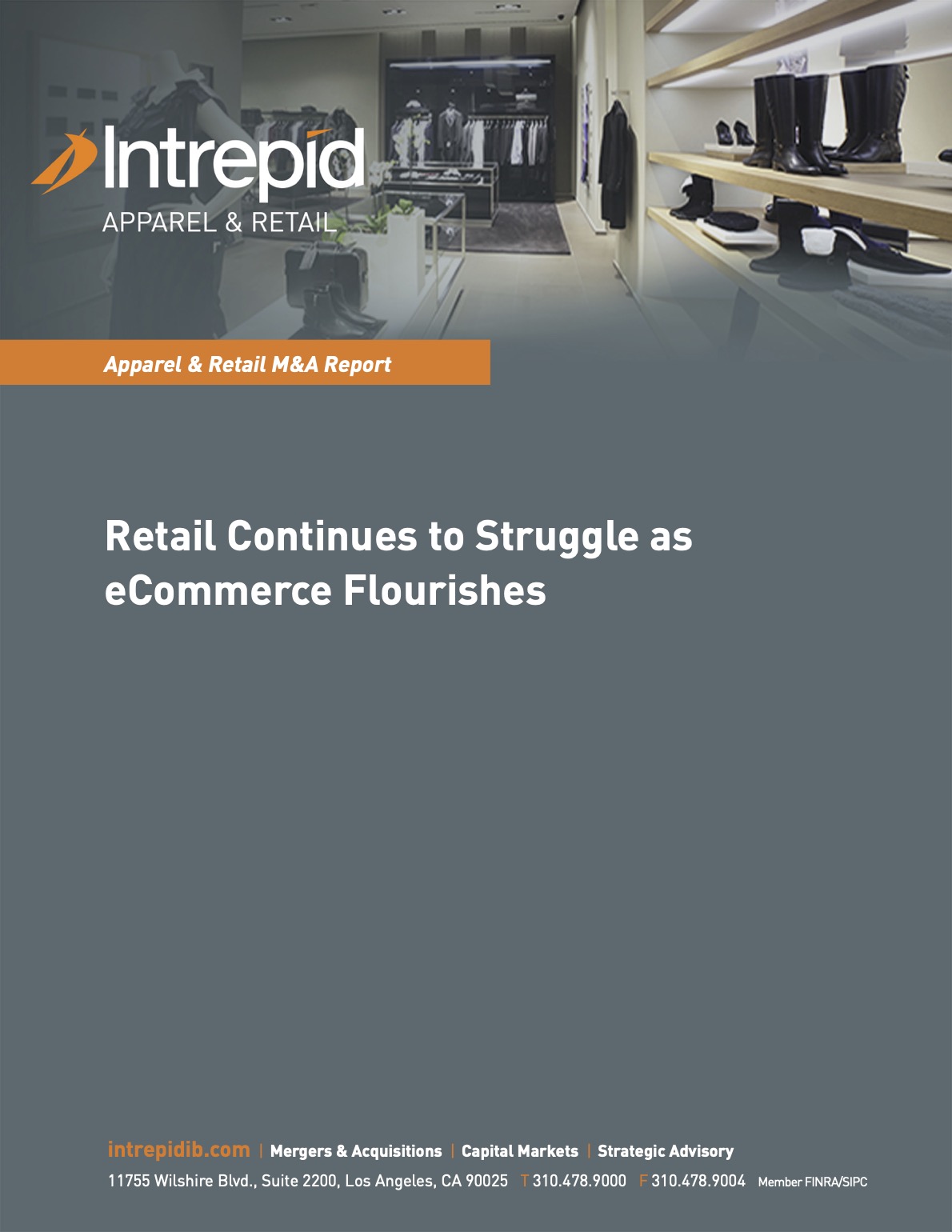Retailers continued to struggle at the beginning of 2017, with numerous retailers planning to shut down physical locations throughout the remainder of the year. Hampered by the success of eCommerce, Millennials seeking a different retail experience, and general competition, more retailers are either shutting down select stores or are on the edge of insolvency. There are more than 1,500 stores slated to close in 2017, with the count ever increasing. Macy’s, Bebe, Wet Seal and, most recently, Ralph Lauren, represent a selection of the retailers with plans to right size their physical footprint. Despite a largely negative trend in the retail market, some retailers are bucking the trend. Two of the retailers include Lululemon, which intends to expand its physical footprint as its stores are “highly profitable,” and TJX, which saw consolidated comparable store sales increase 5% year-over-year in 2016.
The continued success of Amazon and other eCommerce retailers, which have contributed to the light foot traffic experienced at malls in an already oversaturated retail market, introduces yet another hurdle that retailers are struggling to overcome. As retailers rapidly begin closing physical stores, shopping malls have hundreds of slots to fill. More than 10% of U.S. retail space may need to be closed, converted to other uses or renegotiated for lower rent in the coming years.
Contrary to the current retail environment, numerous apparel brands can find success and continue to attract investors. Canada Goose, a Canadian-based designer, manufacturer, and wholesaler of premium outdoor apparel, went public in March, raising approximately $255 million. Canada Goose is an upwardly trending brand, with margin expansion and meaningful growth opportunities. The brand is expected to generate double-digit sales growth for the foreseeable future driven by wholesale and direct-to-consumer growth, expansion into new markets and new product categories, including non-winter items. Since its IPO debut, the company’s share price has risen 27.5% and is currently trading at 36.7x EV/2016 EBITDA and 6.6x EV/revenue.
Another bright spot in the apparel industry was J. Jill filing for an IPO in February; the company defines itself as an “emerging growth company.” J. Jill currently operates 275 stores, with plans to add at least 100 store locations in lifestyle centers and premium malls. The company also intends to drive growth through its direct-to-consumer sales and by broadening certain product categories, like petites and accessories.
In addition to equity market activity, we continue to see M&A appetite for branded businesses and companies with proven eCommerce strategies; strategic players have turned to M&A for brand add-ons and adding select capabilities including eCommerce expertise, brand awareness and social media marketing. Direct-to-consumer brands ModCloth, True&Co. and SkipHop, all of which were acquired in the past quarter, received substantial interest from potential acquirers. Acquirers are particularly interested in models that have proprietary or unique data analytics tools and can benefit from back office support and supply chain and global brand management expertise, similar to the aforementioned brands.

